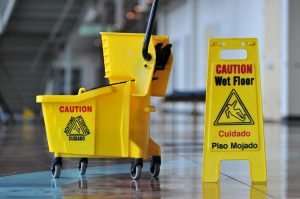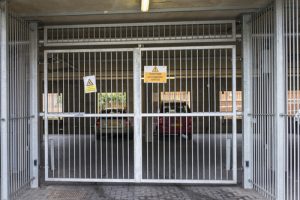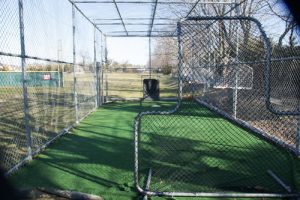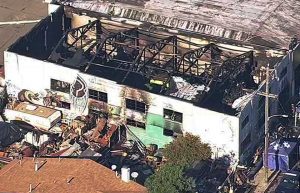
Many California businesses ask their patrons to sign waivers of liability when the patrons use their facilities. These waivers are especially common in recreational businesses such as gyms. While these waivers may absolve companies of liability when people are injured, they do not offer absolute protection to the businesses. In cases in which juries find that the actions of the businesses amounted to negligence per se or gross negligence, the companies may still be liable to pay damages despite the waivers. In Ziegler v. The Bay Clubs Company, LLC, et al., Los Angeles Superior Court case no. BC638802, a plaintiff prevailed in her negligence claim against a gym despite having signed a waiver of liability.
Factual background of the case
Patricia Ziegler, a 71-year-old retired woman, visited the Bay Clubs Company’s gym in El Segundo on Jan. 31, 2016. While she was walking through the gym, she attempted to take a shortcut between two treadmills. People at the gym often took a shortcut between the treadmills instead of walking the long way around on the aisles. The gym had a metal wireway on the floor between the treadmills that was approximately six inches by six inches. The wireway had an unsecured lid. While Ziegler was walking through the area, her foot caught underneath the lid, causing her to fall. She fractured and dislocated her elbow and filed a lawsuit against the company for her injuries, alleging negligence per se and gross negligence. The plaintiff allegedly had signed a waiver of liability when she joined the gym.
 California Accident Attorneys Blog
California Accident Attorneys Blog


 The California Supreme Court recently ruled in
The California Supreme Court recently ruled in  Automatic gate accidents in Los Angeles can cause serious injuries or deaths. In these types of cases, there are several parties that might be liable. The property owners or lessors may be responsible if they negligently retain or repair the gates or if the knew or should have known about an existing defect and failed to repair it. If the automatic gate failed because of a defective part, the part’s manufacturer may be liable to pay damages. Finally, people who are injured in gate accidents may also share liability. In Park v. Oh, Los Angeles Superior Court Case No. BC569323, the plaintiff and the property owner shared liability.
Automatic gate accidents in Los Angeles can cause serious injuries or deaths. In these types of cases, there are several parties that might be liable. The property owners or lessors may be responsible if they negligently retain or repair the gates or if the knew or should have known about an existing defect and failed to repair it. If the automatic gate failed because of a defective part, the part’s manufacturer may be liable to pay damages. Finally, people who are injured in gate accidents may also share liability. In Park v. Oh, Los Angeles Superior Court Case No. BC569323, the plaintiff and the property owner shared liability.
 Property owners and operators in California owe duties of care to protect people who are legally present on their properties from dangerous conditions. Property owners must either know about the existence of the hazardous condition or should know about it for liability to attach. They must take steps to correct hazards about which they know or should have known and to warn visitors to their property about their existence. In Lefebvre v. NC Valley Baseball, LLC, Stanislaus County Superior Court No. 2019247, the court considered the concepts of notice and of assumption of the risk in a case involving a man who was injured at a batting cage by a baseball.
Property owners and operators in California owe duties of care to protect people who are legally present on their properties from dangerous conditions. Property owners must either know about the existence of the hazardous condition or should know about it for liability to attach. They must take steps to correct hazards about which they know or should have known and to warn visitors to their property about their existence. In Lefebvre v. NC Valley Baseball, LLC, Stanislaus County Superior Court No. 2019247, the court considered the concepts of notice and of assumption of the risk in a case involving a man who was injured at a batting cage by a baseball.
 When visitors to the properties of others are injured in California, they may be able to recover damages by holding the property owners liable in a premises liability lawsuit. However, it is important for people to note that just because they might be injured by a dangerous condition that exists on the property does not necessarily mean that they will be able to recover damages. In Jacobs v. Coldwell Banker Residential Brokerage Company,2d Civil No. B277832, the court found that victims who are injured in accidents that are unforeseeable are not able to hold the defendants liable under a theory of premises liability.
When visitors to the properties of others are injured in California, they may be able to recover damages by holding the property owners liable in a premises liability lawsuit. However, it is important for people to note that just because they might be injured by a dangerous condition that exists on the property does not necessarily mean that they will be able to recover damages. In Jacobs v. Coldwell Banker Residential Brokerage Company,2d Civil No. B277832, the court found that victims who are injured in accidents that are unforeseeable are not able to hold the defendants liable under a theory of premises liability.
 The tragic Ghost Ship warehouse fire in Oakland, California resulted in the deaths of 36 people. The warehouse had been illegally converted into living and working spaces for artists, and the victims of the fire died during a music concert that was being held in the building. The fire demonstrates the problems that can happen when buildings are used for purposes for which they were not intended. Unfortunately, the high real estate prices and rents in cities such as San Francisco, Oakland and Los Angeles has contributed to people using these spaces to work and live even though the buildings are not intended for doing so. Experienced personal injury attorneys may hold the landowners liable by filing lawsuits against them, helping to deter the negligent conduct even when code enforcement may be difficult.
The tragic Ghost Ship warehouse fire in Oakland, California resulted in the deaths of 36 people. The warehouse had been illegally converted into living and working spaces for artists, and the victims of the fire died during a music concert that was being held in the building. The fire demonstrates the problems that can happen when buildings are used for purposes for which they were not intended. Unfortunately, the high real estate prices and rents in cities such as San Francisco, Oakland and Los Angeles has contributed to people using these spaces to work and live even though the buildings are not intended for doing so. Experienced personal injury attorneys may hold the landowners liable by filing lawsuits against them, helping to deter the negligent conduct even when code enforcement may be difficult.